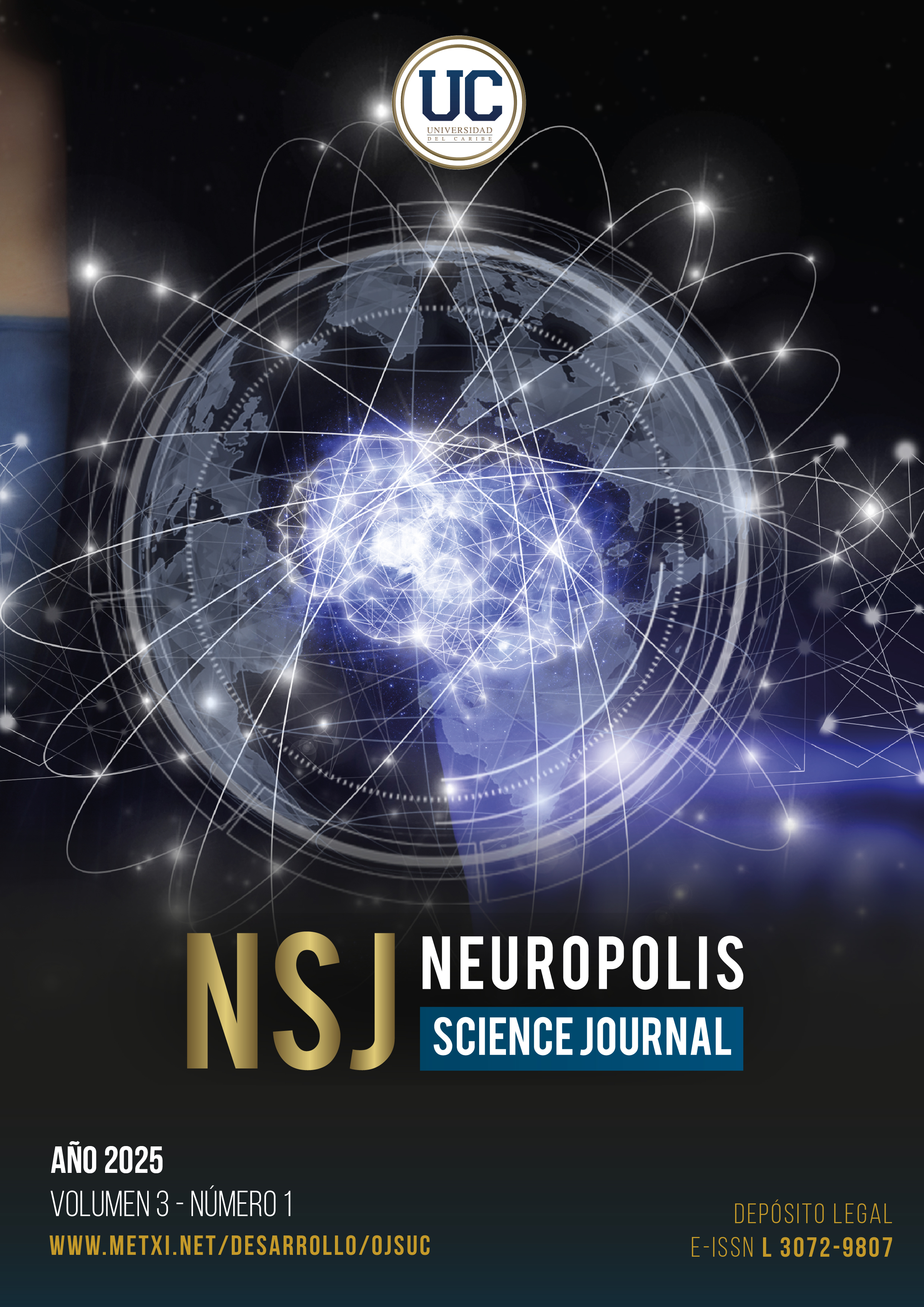AI in panamanian education: perspectives on personalization and ethical challenges
Main Article Content
Section
Abstract
This research explores the opportunities, challenges, and ethical implications of AI in Panamanian education. The hypothesis suggests that AI can transform teaching processes by adapting them to the individual needs of students. A mixed methodology was used, which allowed us to gain a comprehensive view of how the use of AI in personalized education can be a strategic ally in the teaching and learning process. The results suggest that AI has the potential to optimize education, although its ethical implications, its impact on human relationships, and the current limitations in the Panamanian educational environment must be carefully considered.

This work is licensed under a Creative Commons Attribution-NonCommercial 4.0 International License.
Downloads
Article Details
How to Cite
References
Aparicio-Gómez, O. Y., & Aparicio-Gómez, W. O. (2024). Innovación educativa con sistemas de aprendizaje adaptativo impulsados por Inteligencia Artificial. Revista Internacional de Pedagogía e Innovación Educativa, 4(2), 343-363.
Banco Mundial. (2023). Gastos en educación, porcentaje del PIB. Recuperado de https://data.worldbank.org/indicator/SE.XPD.TOTL.GD.ZS?locations=PA
Benjamins, R., & Salazar, I. (2020). El mito del algoritmo. Cuentos y cuentas de la Inteligencia artificial. Ediciones Anaya Multimedia. https://bit.ly/3QfzhwR
Binet, A., & Simon, T. (1905). Méthodes nouvelles pour le diagnostic du niveau intellectuel des anormaux. Organon.
Bitzer, D. (1961). PLATO: A new educational system. Educational Technology.
Bolaño-García, M., & Duarte-Acosta, M. (2024). Una revisión sistemática del uso de la inteligencia artificial en la educación. Revista Colombiana de Cirugía, 39(1), 51-63. https://doi.org/10.30944/20117582.2365
Carbonell, J. (1970). The Scholar system: A computer-based education system. In Proceedings of the International Conference on Artificial Intelligence.
Castillo, J. M. A., Oñate, D. P. B., Mendez, S. G. P., & Gavilanez, C. G. R. (2024). La Inteligencia Artificial en el Proceso de Enseñanza y Aprendizaje Crítico. Revista Social Fronteriza, 4(3).
CEPAL. (2023). Índice Latinoamericano de Inteligencia Artificial. https://indicelatam.cl
Comisión Europea. (2023). Enseñar con IA: Evaluación, retroalimentación y personalización. Centro Europeo de Educación Digital.
Crawford, K. (2023). Atlas de I. Poder, Política y Costes Planetarios de la Inteligencia Artificial. Ned ediciones.
Del Carmen González-Vega, A. M., Sánchez, R. M., Salazar, A. L., & Salazar, G. L. L. (2022). La entrevista cualitativa como técnica de investigación en el estudio de las organizaciones. New Trends in Qualitative Research, 14, e571-e571.
Enríquez Vázquez, Larisa y Navarro Perales, Joaquin (2024, enero-febrero). Explorar los matices: aprendizaje personalizado y adaptativo en la educación digital. Revista Digital Universitaria (rdu), 25(1). http://doi.org/10.22201/cuaieed.16076079e.2022.23.6.10
Global Market Insights. (2023). AI in education market statistics, trends & growth opportunity 2032. Global Market Insights. https://www.gminsights.com
Gobierno de España, Ministerio de Economía, Comercio y Empresa. (2024). El Gobierno aprueba la Estrategia de Inteligencia Artificial 2024. El Gobierno aprueba la Estrategia de Inteligencia Artificial 2024 (mineco.gob.es)
Gobierno de Panamá. (2023). Ley 362 de 2 de febrero. Recuperado de https://www.gacetaoficial.gob.pa
González, A. (2023). Desafíos en la implementación de inteligencia artificial en el sistema educativo panameño. Revista de Educación y Tecnología, 15(4), 72-85.
Guzmán, C., Palacios, D., & Palacios, E. (2023). Incidencias de los ciberdelitos y sus regulaciones en la ciudad de Panamá. Revista Semilla Científica, (4), 524-539.
Jara, I., & Ochoa, J. M. (2020). Usos y efectos de la inteligencia artificial en educación. Banco Interamericano de Desarrollo (BID) Usos y efectos de la inteligencia artificial en educación (iadb.org)
Liu, B. L., Morales, D., Roser Chinchilla, J. F., Sabzalieva, E., Valentini, A., Nascimento, D. M. V. D., & Yerovi Verano, C. A. (2023). Oportunidades y desafíos de la era de la inteligencia artificial para la educación superior: una introducción para los actores de la educación superior.
Masias, E. J. F., Segovia, J. H. L., Casique, A. G., & Díaz, M. E. D. (2023). Análisis de sentimientos con inteligencia artificial para mejorar el proceso enseñanza-aprendizaje en el aula virtual. Publicaciones, 53(2), 185-21.
McCarthy, J., Minsky, M., Rochester, N., & Shannon, C. (2006). A Proposal for the Dartmouth Summer Research Project on Artificial Intelligence. AI Magazine, 27(4), 12-14. https://doi.org/10.1609/aimag.v27i4.1904
Mertens, D. (2015). Investigación y evaluación en educación y psicología. México: Wolters Kluwer.
Ministerio de Ciencia, Tecnología, Conocimiento e Innovación de Chile. (2024). “Con más de 100 acciones comprometidas para 2026, ministra de Ciencia presenta nueva Política de Inteligencia Artificial” MinCiencia
Newell, A., & Simon, H. A. (1956). The logic theory machine: A complex information processing system. In Proceedings of the Western Joint Computer Conference.
Newell, A., Shaw, J. C., & Simon, H. A. (1959). The processes of human problem solving. In H. A. Simon (Ed.), Models of thought (pp. 281-294). Wiley.
Pezzini, M. C. (2022). Tutores inteligentes en la enseñanza: Una revisión y análisis en la educación secundaria.
Turing, A. M. (1950). Computing machinery and intelligence. Mind, 59(236), 433-460. https://doi.org/10.1093/mind/LIX.236.433
UNESCO. (2021). Inteligencia artificial y educación: Guía para las personas a cargo de formular políticas. https://unesdoc.unesco.org/ark:/48223/pf0000379376
UNESCO. (2021). Oportunidades y desafíos de la era de la inteligencia artificial para la educación superior: Una introducción para los actores de la educación superior. https://unesdoc.unesco.org/ark:/48223/pf0000376704
Vizcaíno, P., Cedeño, R., & Maldonado, I. (2023). Metodología de la investigación científica: guía práctica. Revista Multidiciplinaria Ciencia Latina, 7(4), 9723-9762.
Wiener, N. (1948). Cybernetics: Or control and communication in the animal and the machine. MIT Press.
Zamora, Y., & Mendoza, M. (2023). La Inteligencia artificial y el futuro de la educación superior: desafíos y oportunidades. Horizontes pedagógicos, 25(1), 1-13. https://horizontespedagogicos.ibero.edu.co/article/download/hop.25101/1858

